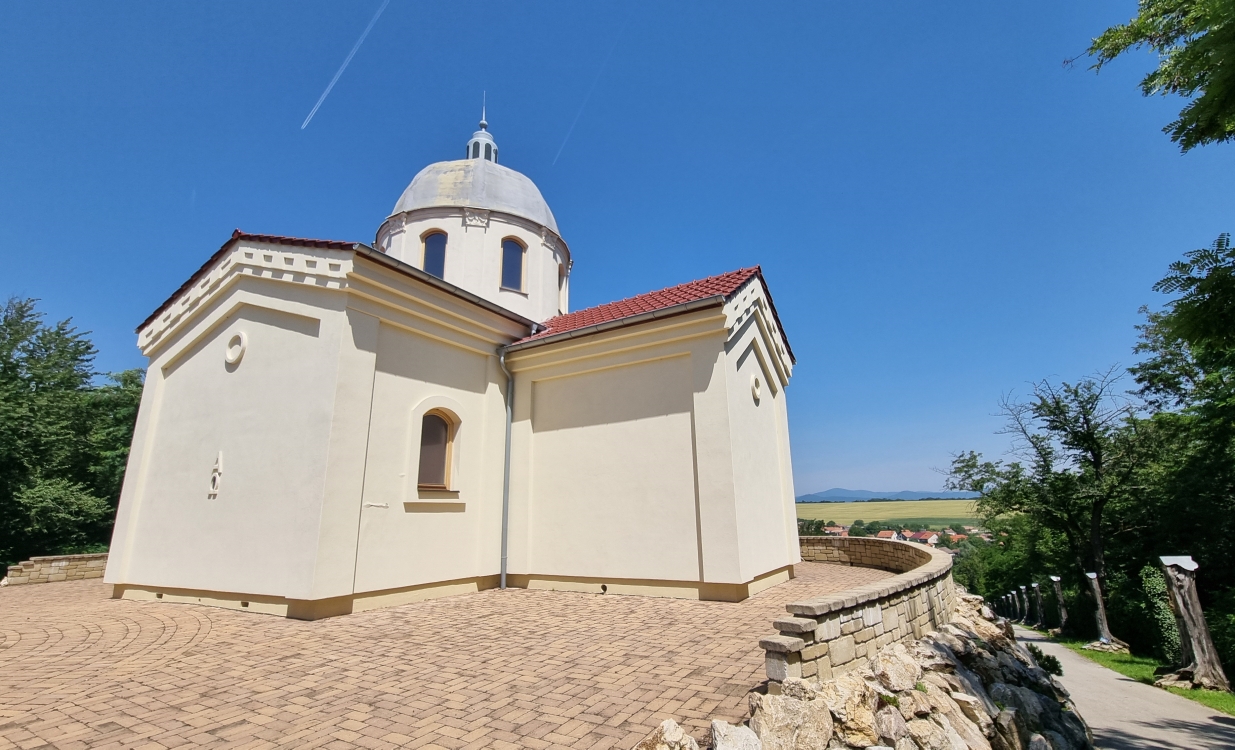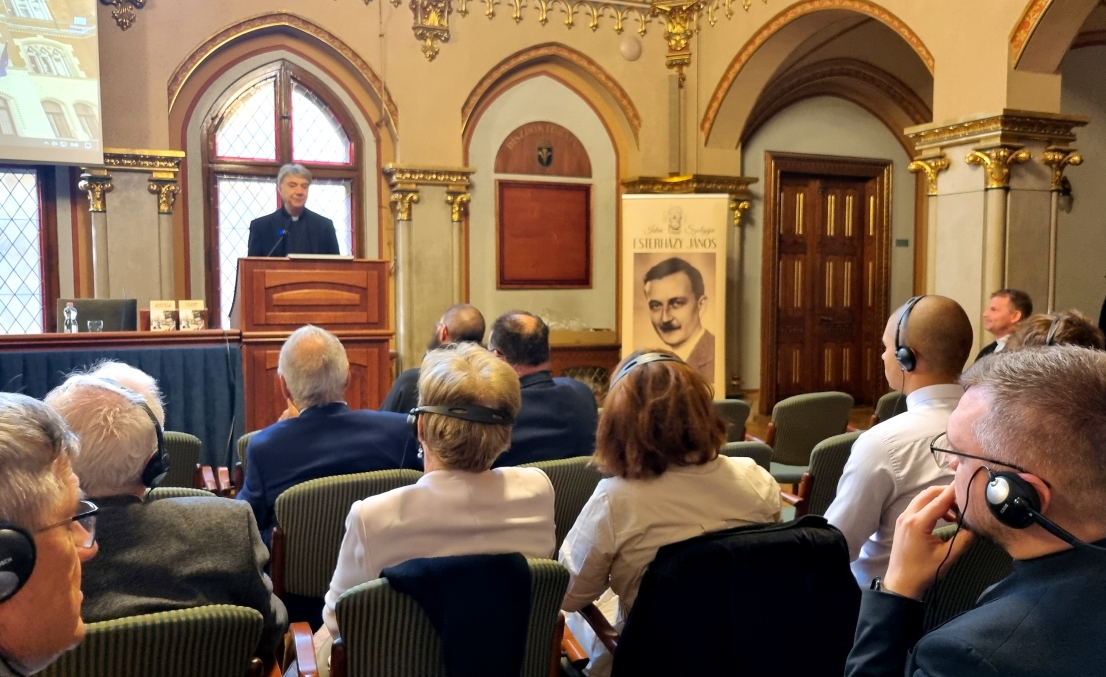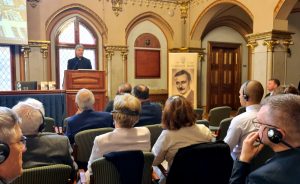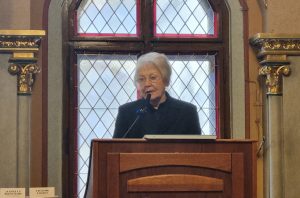
A memorial place for the Hungarian martyr of Europe's darkes times. Continue reading

The Péter Pázmány Catholic University in Budapest hosted a conference entitled “Social Forgiveness and Reconciliation in the Light of János Esterházy’s Work and Martyrdom”. The leader of the Hungarian minority in Slovakia after World War I. and during World War II. is still stigmatized as a war-criminal by the Slovak state, while hailed as a martyr by Hungarians and Poles alike.
The keynote speech was delivered by Mons. Domenico Battaglia, Archbishop of Naples, who has emphasized that Count Esterházy was not a bearer of a naïve pacifism as some were lead to believe, instead, through his work and suffering he was a messenger of the Gospel. The Archbishop has highlighted the former Hungarian politician’s contribution to the coexistence between different nationalities in Central Europe, and described how he helped them during the war.
János Esterházy (1901-57) has realized during the horror of World War II that
the development in technology without the message of the Gospel will lead to unspeakable inhumanity.”
This is something that we can witness even today, said the Archbishop. Instead, the politics of Count Esterházy, especially that in defense of national minorities, demonstrated what the role of Christianity really is in the secular sphere. This revealed a fundamental truth, that the state, and state-institutions are for the service of the people, and vice versa.
The Hungarian politician always advocated for an outward facing church, and emphasized that the gospel aims to put human dignity over anything else, even over national interest, said Monsignor Battaglia.

Monsignor Domenico Battaglia János Esterházy Conference Photo: Hungary Today
Dagmar Babcanová, former Ambassador of Slovakia to the Vatican, emphasized in her speech that János Esterházy’s Christian universalism was the foundation of his life’s work. Despite this, some Slovak opinion-makers still accuse him of irredentism and nationalism. Therefore it is time that the Slovak public discourse puts Esterházy’s name into the proper context of the times that he lived in, she emphasized.
The Hungarian politician is still regarded by Slovak historians as a controversial figure. After the fall of the Iron Curtain in 1989, Slovak historiography remained unkind to the legacy of Esterházy. Yet Ms. Babcanová expressed a hope that his legacy could one day speak even to those who still think that the Hungarian politician’s work was not in the interest of Slovaks. “He should not be demonized”, said the former Slovak diplomat. Today there are hopeful signs that even his opponents among Slovak thinkers are now saying that his political trial in the hands of the communists and his imprisonment was a serious miscarriage of justice.
Furthermore, the testimony of those who have witnessed his time in prison have all said that Esterházy died in the state of holiness,
reminded Babcanová.

Dagmar Babcanová. Photo: Hungary Today
She added that in Slovakia today sadly no one is willing to take or assign historic responsibility for his suffering and unjust trial, even though there is strong evidence pointing to the fact that he was sentenced illegally by the communist court. Slovak historians remain uncomfortable with Esterházy’s work on behalf of the Hungarian minority between and during the wars. However, pointed out Babcanová, his national focus has always been subordinated to his Christian universalism. This lead him to oppose both communism and fascism. Esterházy has never used his political activism on behalf of the Hungarian community in conflict with the interests of other nationalities. He shared the European vision of the EU’s founder Konrad Adenauer or Alcide De Gasperi, that common peace in Europe can only come about if God’s blessing is over it. Nationalistic ambitions and the twisting of historic facts must be avoided, closed her words Dagmar Babcanová.

Péter Pázmány Catholic University in Budapest. Photo: Hungary Today
Historian Dr. Imre Molnár, Fra Ambrogio Maria Canavesi, Pawel Cebula OFMConv, Dr. Mihály Laurinyecz, Dr. Józef Lucyszyn, Dr. Gregorz Górny have also given a presentation during the conference among a number of other speakers.
Featured Image: Hungary Today